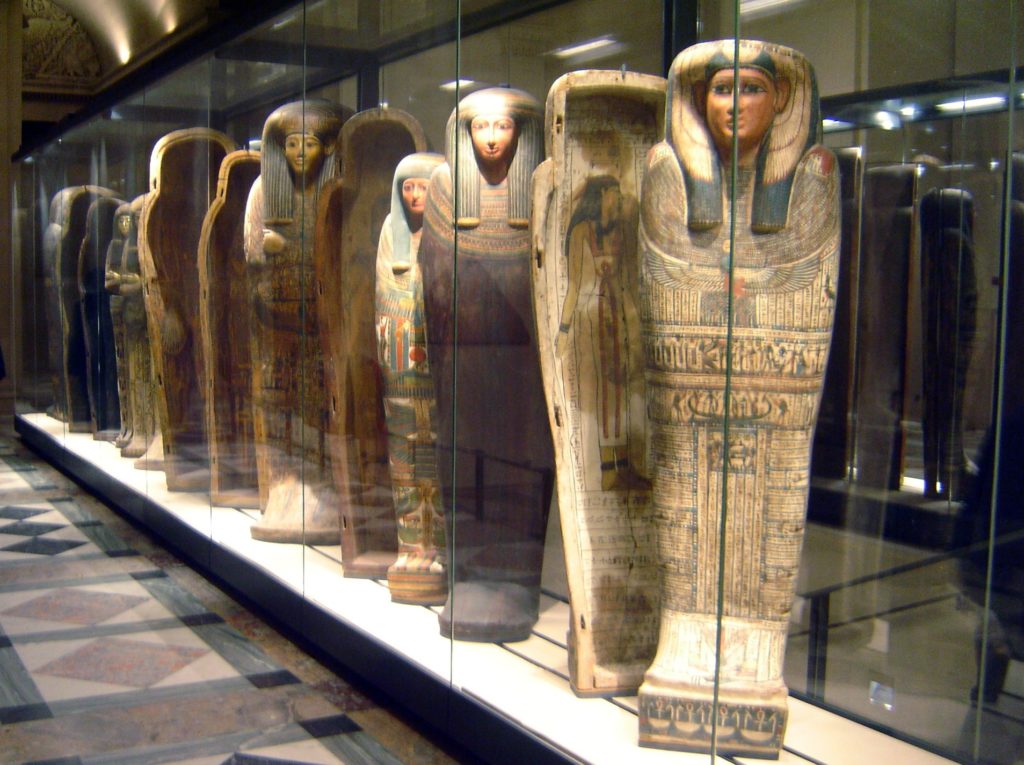By Arkady Petrov
RIO DE JANEIRO, BRAZIL – The Louvre Museum, in France, may transfer parts of its Egyptian collection to the Rio National Museum, destroyed by a fire in September 2018.
The director of the Brazilian institution, Alexander Kellner, met on June 6th in Paris with the president of the French museum, Jean-Luc Martinez, who promised him a long-term loan of pieces.

One of the most significant losses in the fire that destroyed the institution was a part of its Egyptian collection, listed among the most important in the world and the largest in Latin America. Most of it had been brought to the country by the first emperor of Brazil, Dom Pedro I.
Three mummies in this collection were considered particularly valuable and have been lost: that of Hori, a high official of the Egyptian hierarchy who lived around 1,000 B.C.; Harsiese, who also held a prominent position and lived around 650 B.C.; and a female mummy dating from the 1st century on which there is little information.
The most crucial piece in the collection, however, was the richly crafted skiff (coffin) of Lady Sha-amun-em-su.
However, not all of ancient civilization has been lost. In the months following the fire, researchers located about 200 items from the Egyptian collection that were salvageable.
“The material to be loaned will vary: Egyptian pieces, but also Graeco-Roman pieces, as well as other items that may be of interest to us,” said Kellner.
By April, the National Museum had received R$150,000 (US$37,000) from the British Council and approximately R$800,000 from the German government, which intends to help even further with a contribution of up to R$4.4 million (1 million euros). The reconstruction cost for the building is estimated at approximately R$100 million.
A collection of 12,000 pieces from the National Museum, linked to the Federal University of Rio, was consumed by a fire on September 2nd, 2018. It was the oldest science center in the country, 200 years old.
The building held some of the most important pieces of the country’s natural history, such as Luzia, the oldest skeleton ever found in the Americas.

